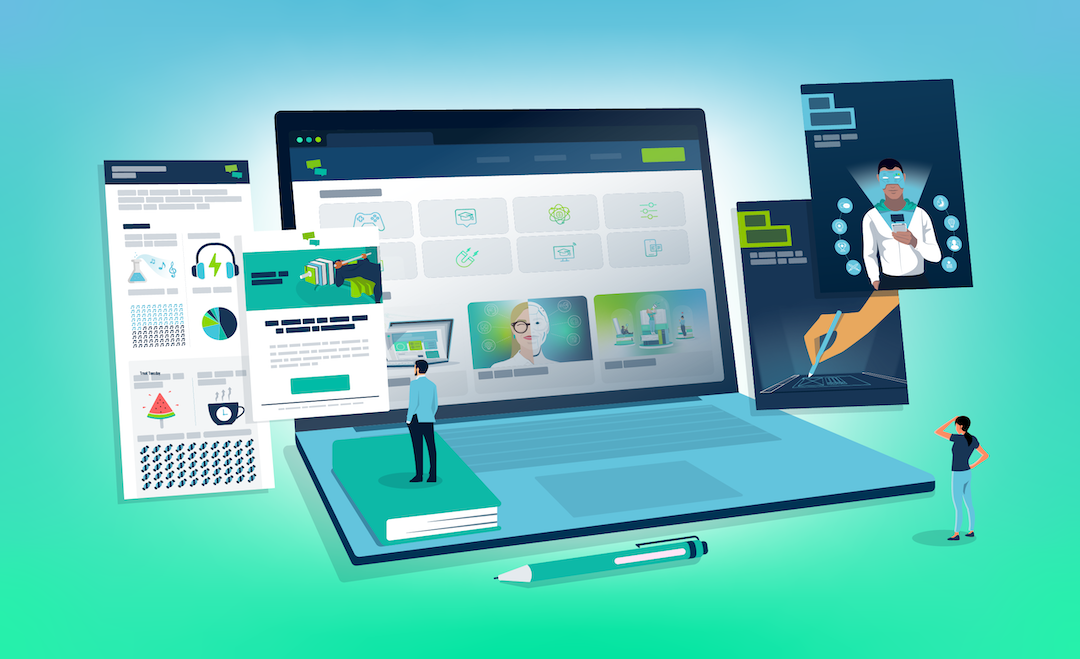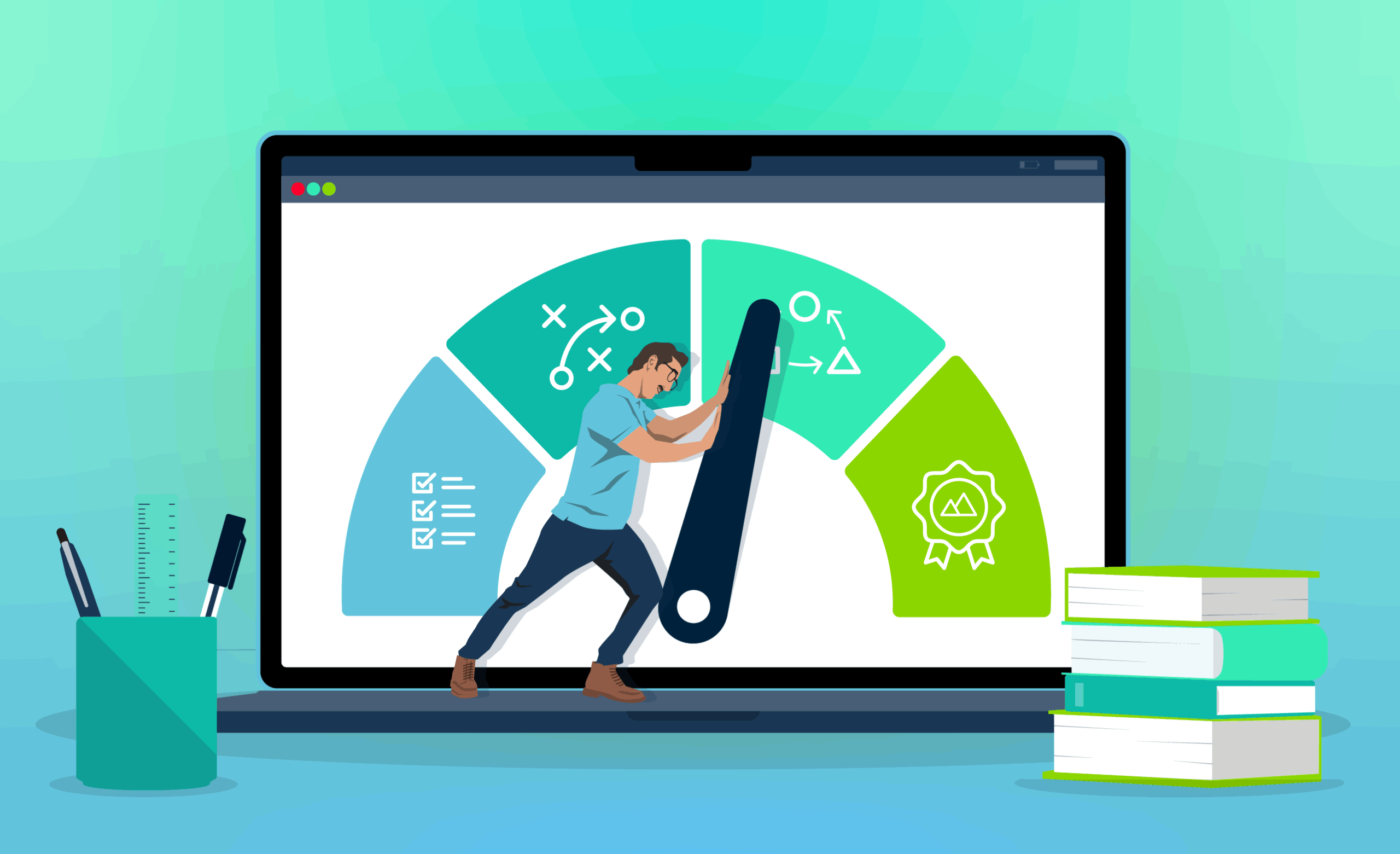The world is changing…
The digital age has ushered in a new, super-intelligent economy: THE KNOWLEDGE ECONOMY! It’s the economic equivalent of your friend that’s annoyingly great at everything. It’s lithe, athletic, super-smart and good looking.
What Is The Knowledge Economy?
The knowledge economy is a system based around Intellectual Capital, or brainpower.
To understand it, think about your own life. You spend, invest, budget and consume all sorts of resources. This is your own economy, but if you scale it up to a national or even international size, it’s still the same principle. It’s simply how you (or a government, or the world) use available resources.
People traditionally think of economics in financial terms. But increasingly people are talking about a new type of economy: the economy of brainpower.
Again, think of your own life. You have one brain and it can only do so much work. How you choose to spend and invest your brainpower – that’s your own knowledge economy. You can scale this up to a national or even an international size.
This global network of brainpower is the knowledge economy.
Where Did It Come From?

The knowledge economy has no doubt been around since the Stone Age. Teaching others to rub sticks together to create fire was presumably a trendy and marketable asset.
Over time, the world has changed and many different types of economic structures have enjoyed their golden era. We’re in the middle of the next big change. The age of information has made a new way of working possible.
The recent explosion of technology has transformed everything. It makes sharing information quicker and easier. With all this knowledge being shared, technology has become increasingly powerful.
This means that technology is able to achieve more, but it also means that it gets increasingly complicated. For technology to keep advancing, the pool of knowledge needs to keep growing. The economy of developed nations is now fueled by knowledge and brainpower.
In a tech obsessed world, knowledge and education matter more than ever.
Knowledge Economy in Learning and Development
The engine that drives the knowledge economy is education. You can think of education as an investment in knowledge. You put time and money in and you get knowledge out. Governments across the world are investing in education. Literacy rates are the highest they’ve ever been and more students go to university than at any other point in history.
But if businesses are to succeed, education can’t be restricted to schools and universities. Every area of life needs to be an opportunity for intellectual growth. None more so than the world of work.
This means that Learning and Development is now centre-stage. A stark contrast to the recent past in which L&D was the first department to get cut when the going got tough.
For companies to thrive in the modern economy, they need as much knowledge as they can possibly acquire. This means they need to do two things:
1. Attract the Brightest Minds

It’s important to attract future talent to your organisation. They’ll help grow your pool of knowledge. The brightest minds often have the pick of whichever company they like the look of most. This means it’s your job to attract them.
2. Develop the Knowledge They Have
By the age of 35, about 25% of employees have worked 5 jobs. This shows how important it is to prevent knowledge disappearing down the cracks every time someone leaves the organisation.
By nurturing a knowledge sharing culture, you can be confident that all your staff have the know-how they need to do their job.
Social Learning is Paramount to the Knowledge Economy!
Social Learning is at the core of a knowledge sharing culture, not to mention the core of the knowledge economy too. As the rate of progress accelerates, businesses need to be able to react to changes in the market. This means that your people should be able to adapt and up-skill themselves as quickly as possible.
Social Learning is a great way to future-proof your L&D strategy equally, it helps everyone in your organisation share their unique knowledge. As a matter of fact, the more that knowledge is shared, the more secure it is.
Creating a knowledge sharing culture used to be a real challenge. But with the rise of modern technology, you’re able to capture an entire organisation’s intellectual capital and make it accessible to everyone. The very best NextGen LMSs allow your learners to post in forums or share on social feeds. You can even nominate experts to answer questions.
Those in your organisation who are best-suited to instruct others on a topic are free to do so in the way that best suits them. If learners want to share videos, write blog posts, create infographics or record podcasts, they can by posting them onto your LMS. This would make your LMS a handy one-stop destination for every question they have.
Final Words
We now live in a world where the most successful businesses prioritise intellectual capital over financial capital. Creating a company culture in which knowledge can be shared quickly and easily is the secret to success.
The industrial revolution ran on coal. The planned economy ran on money. Equally, the knowledge economy is fuelled by the brains of your learners. Now that knowledge is the new currency of success, if you want to stay ahead of the curve, you need to invest in social learning…
Download our Social is Super White Paper. You can find out how online learning can embrace the 70:20:10 Model! Click here to download the white paper today!








